
Designing the Windfalls
Linda Shad•5/19/2025
Design Philosophy
Let’s break the ice here and talk about my fixation with class.
Why is it so imperative that half the cast is rolling in dough while the other half is struggling to pay rent?
Well.
What better way to explore emotions than by sitting squarely in the grueling discomfort of financial inequality? :)
Being broke is emotional. So is being successful. Scarcity and abundance might just be the two most powerful triggers we’ve got—and in the modern world, where we’re all watching the same shows, playing the same games, and dealing with wildly different realities— no matter where you land, you’re still waking up with your own demons.
In all the ways the Freshmen were an exploration of scarcity, the Windfalls are a tribute to the psychology of abundance. Building a company is hard. Putting your best work into the world? Maybe even harder. And as much as my younger self would refuse to admit, it might actually be harder to take care of yourself, set boundaries, and aim high... than to wallow and blame the world.
So the Windfalls aren’t just here to flex. (Well, they are, but—) they’re also vehicles for something deeper. They carry the burden of performance. The pressure of staying on top. The weird numbness that comes with getting what you thought you wanted. Their Voidpets, Greed, Pride, Lust and Sloth, represent the complexities of adult responsibility. Of having to earn your keep, honor your agency, mind your ego, and allow for rest.
And of course, there's gotta be a reason the Freshmen so feel fired up, depressed, and green with envy, right?
Why is it so imperative that half the cast is rolling in dough while the other half is struggling to pay rent?
Well.
What better way to explore emotions than by sitting squarely in the grueling discomfort of financial inequality? :)
Being broke is emotional. So is being successful. Scarcity and abundance might just be the two most powerful triggers we’ve got—and in the modern world, where we’re all watching the same shows, playing the same games, and dealing with wildly different realities— no matter where you land, you’re still waking up with your own demons.
In all the ways the Freshmen were an exploration of scarcity, the Windfalls are a tribute to the psychology of abundance. Building a company is hard. Putting your best work into the world? Maybe even harder. And as much as my younger self would refuse to admit, it might actually be harder to take care of yourself, set boundaries, and aim high... than to wallow and blame the world.
So the Windfalls aren’t just here to flex. (Well, they are, but—) they’re also vehicles for something deeper. They carry the burden of performance. The pressure of staying on top. The weird numbness that comes with getting what you thought you wanted. Their Voidpets, Greed, Pride, Lust and Sloth, represent the complexities of adult responsibility. Of having to earn your keep, honor your agency, mind your ego, and allow for rest.
And of course, there's gotta be a reason the Freshmen so feel fired up, depressed, and green with envy, right?
Enter the Windfalls.

Pandora
Pandora
-The Girlboss-
Pride
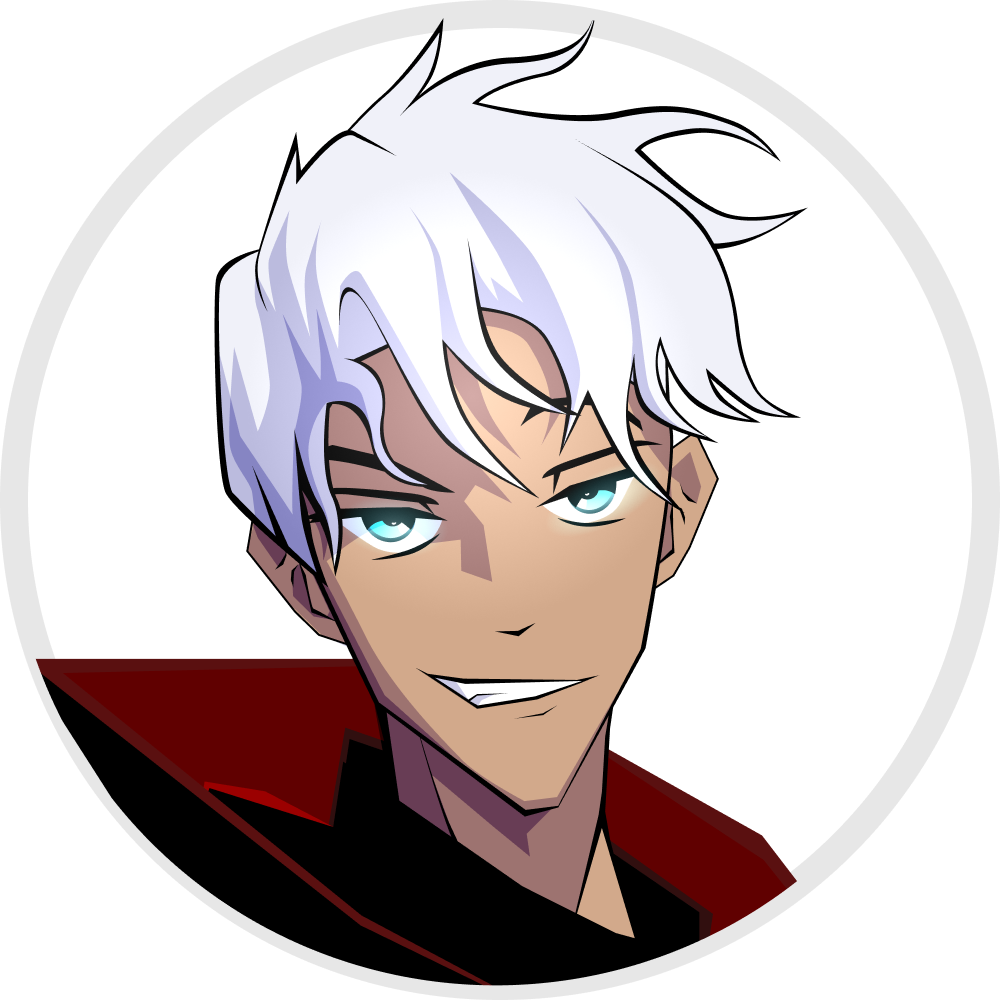
Promise
Promise
-The Capitalist-
Greed

Pecunia
Pecunia
-The Scammer-
Sloth
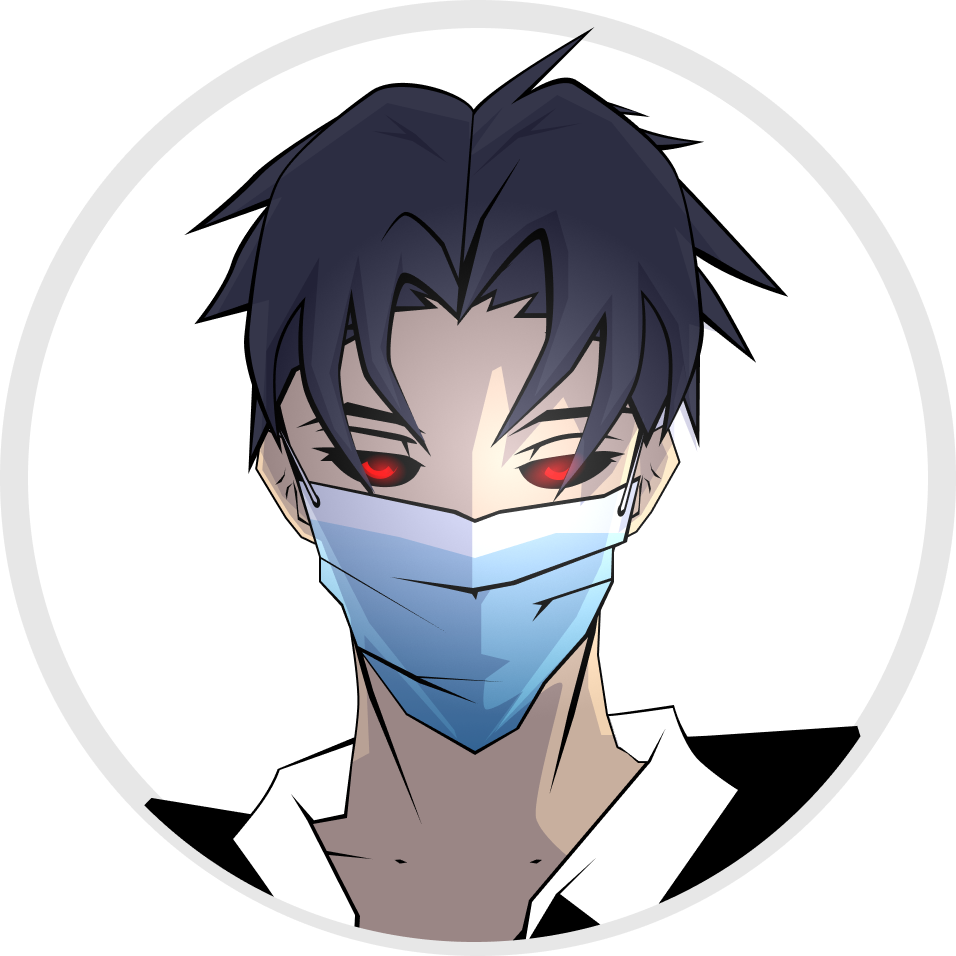
Volo
Volo
-The Philanthropist-
Lust

Luden
Luden
-The Cursed-
Crince
They’re all prodigies. (At least Pandora says so—Luden would disagree.)
Maybe orphaned, maybe mistreated, maybe just unsupervised minors with a talent for murder. Either way, it’s not your problem.
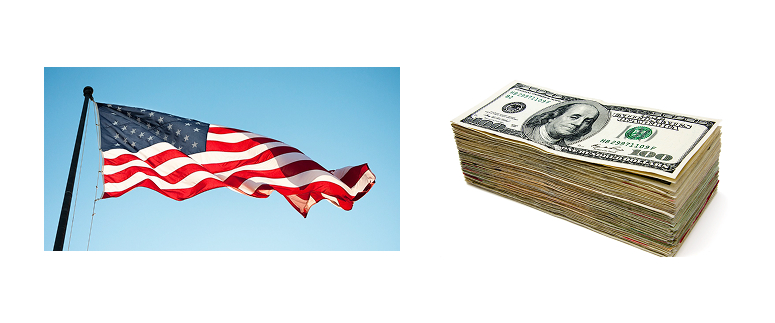 Anyways.
Anyways.
In this family, Greed is solved with money, and loneliness solved with fame. Sloth becomes a business model through strategic arbitrage. Lust isn’t a problem if everyone else is obsessed with you. And Pride? Addressed with total board control, of course.
Native to a layer overflowing with Void Matter and free of government regulation, they ace their classes and skyrocket to success by bringing unchecked capitalism to a dying economy.
They’re designed to toe the line between American Dream and American Dynamism. It’s unclear if they look diverse or are just rocking luxury spray tans. Children of immigrants or celebrities... or both.
Whether you see them as underdogs or villains, one thing’s true: they’ve survived enough to take care of themselves—and each other. That’s the same energy they bring to building their megacorp.
Maybe orphaned, maybe mistreated, maybe just unsupervised minors with a talent for murder. Either way, it’s not your problem.
COLOR PALETTE
Here's their color palette. Anyways.
Anyways.In this family, Greed is solved with money, and loneliness solved with fame. Sloth becomes a business model through strategic arbitrage. Lust isn’t a problem if everyone else is obsessed with you. And Pride? Addressed with total board control, of course.
Native to a layer overflowing with Void Matter and free of government regulation, they ace their classes and skyrocket to success by bringing unchecked capitalism to a dying economy.
They’re designed to toe the line between American Dream and American Dynamism. It’s unclear if they look diverse or are just rocking luxury spray tans. Children of immigrants or celebrities... or both.
Whether you see them as underdogs or villains, one thing’s true: they’ve survived enough to take care of themselves—and each other. That’s the same energy they bring to building their megacorp.
1. Pandora, the girlboss.


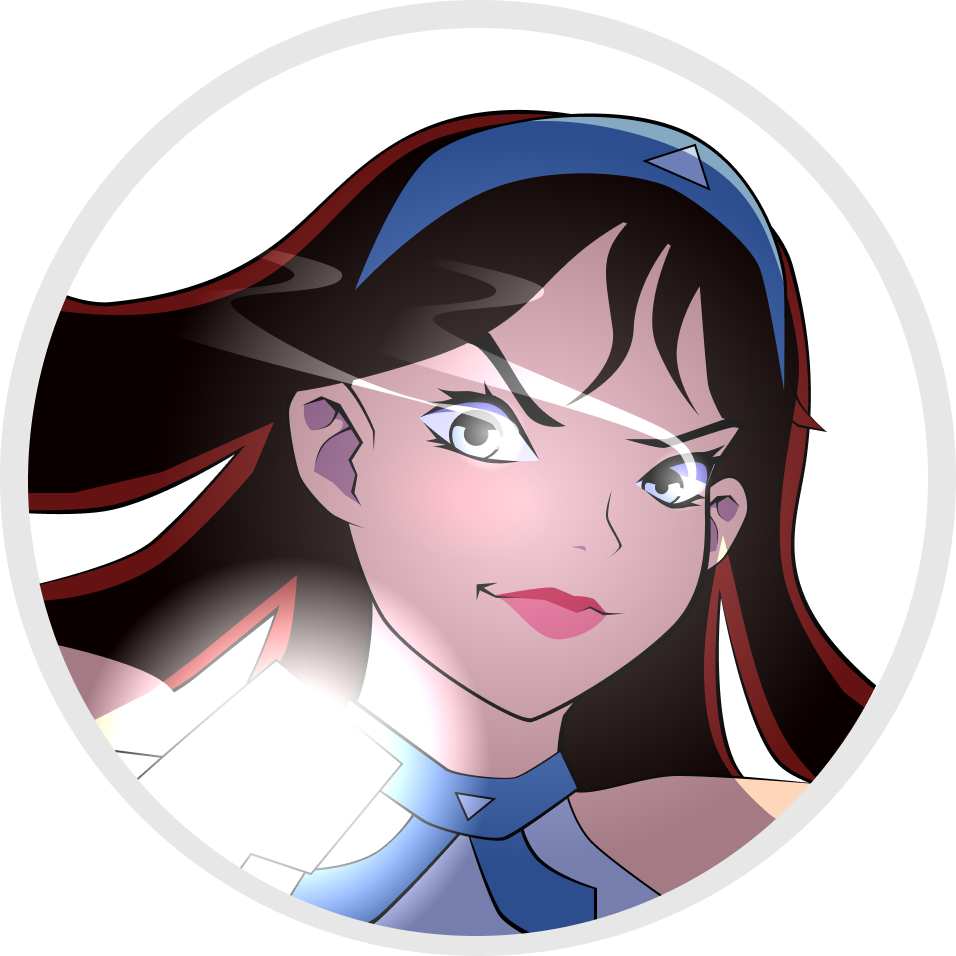
COLORS
The eldest daughter's palette blends steel blue, bright white, and soft accents of pink and red. Steel blue reflects her calculated, corporate exterior—cool, composed, untouchable. White speaks to her need to be seen as good: pure, principled, morally unimpeachable. The pink and red? That’s the part of her still hoping to be liked—soft, feminine, relatable. The approachable side of power.NAME
You might know Pandora from Greek mythology—the woman who opened the box that unleashed all the world’s evils. Fitting, given the sinful monsters her family keeps.But more notably-Pandora in Greek also translated to something between "all gifted" and "all-giving"—a duality that suits the emotion of pride. There’s one kind of pride that presents as noble, selfless, morally upright. And another that flaunts its brilliance, power, and entitlement. Pandora carries both.
2. Promise, the capitalist.

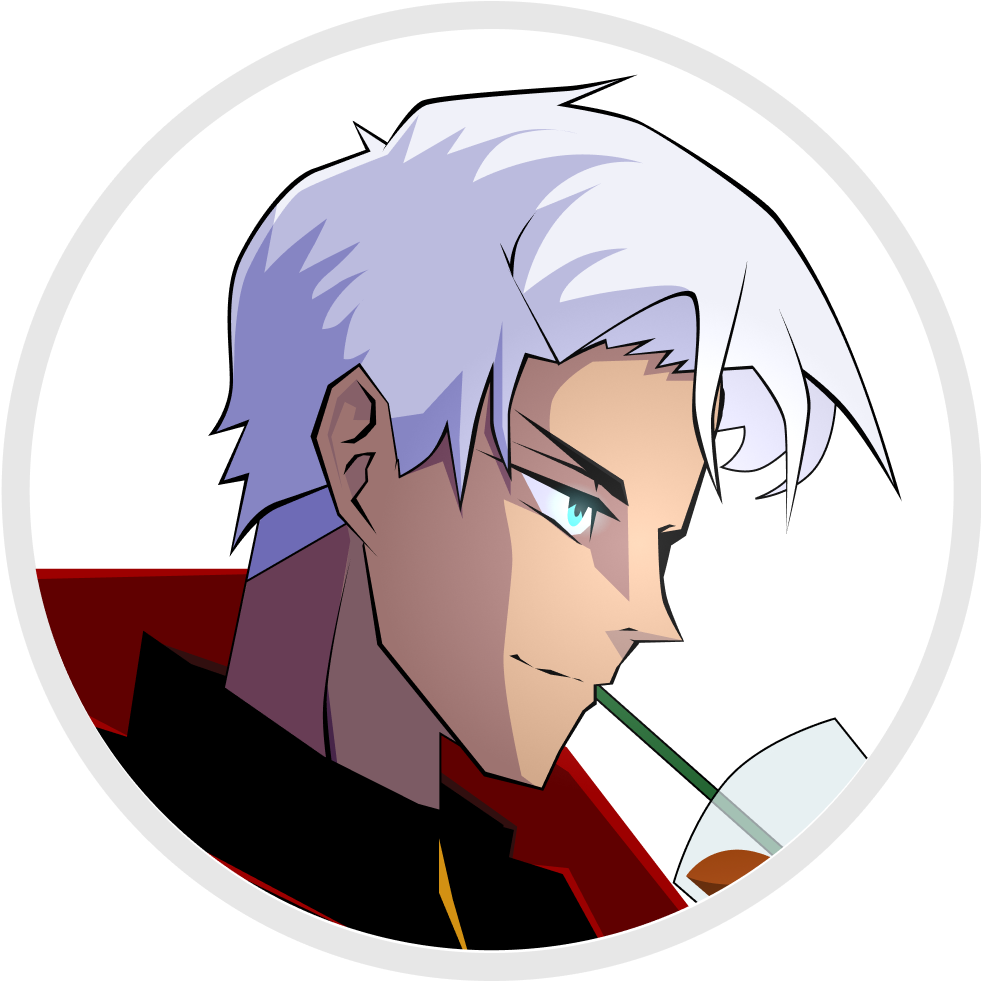

COLORS
Blood red. Marble white. Electric blue. Industrial black.As the second eldest, he mirrors Pandora—while thematically inverting her palette. His red screams dominance and visibility; his blue is a mere flicker of coldness. White hair, white teeth—not signs of purity, but of pay-to-win perfection. And at the core, black. A mark of his indifference to a clean reputation. Unlike his sister, he doesn’t need to be good. Just undeniable.
NAME
In JavaScript, a Promise is used to handle asynchronous operations—things that don’t complete right away. You run the code, send it out, and wait. It might resolve. It might not.Promise doesn’t ask for trust—he assumes it. He speaks in inevitables. He was named with full intention: the function that can’t be ignored, the outcome everyone hinges on, and the risk you take when you build around something you hope will deliver.
His last name is Windfall. And he says he’ll deliver. So I'm just holding him to it.
3. Pecunia, the scammer.


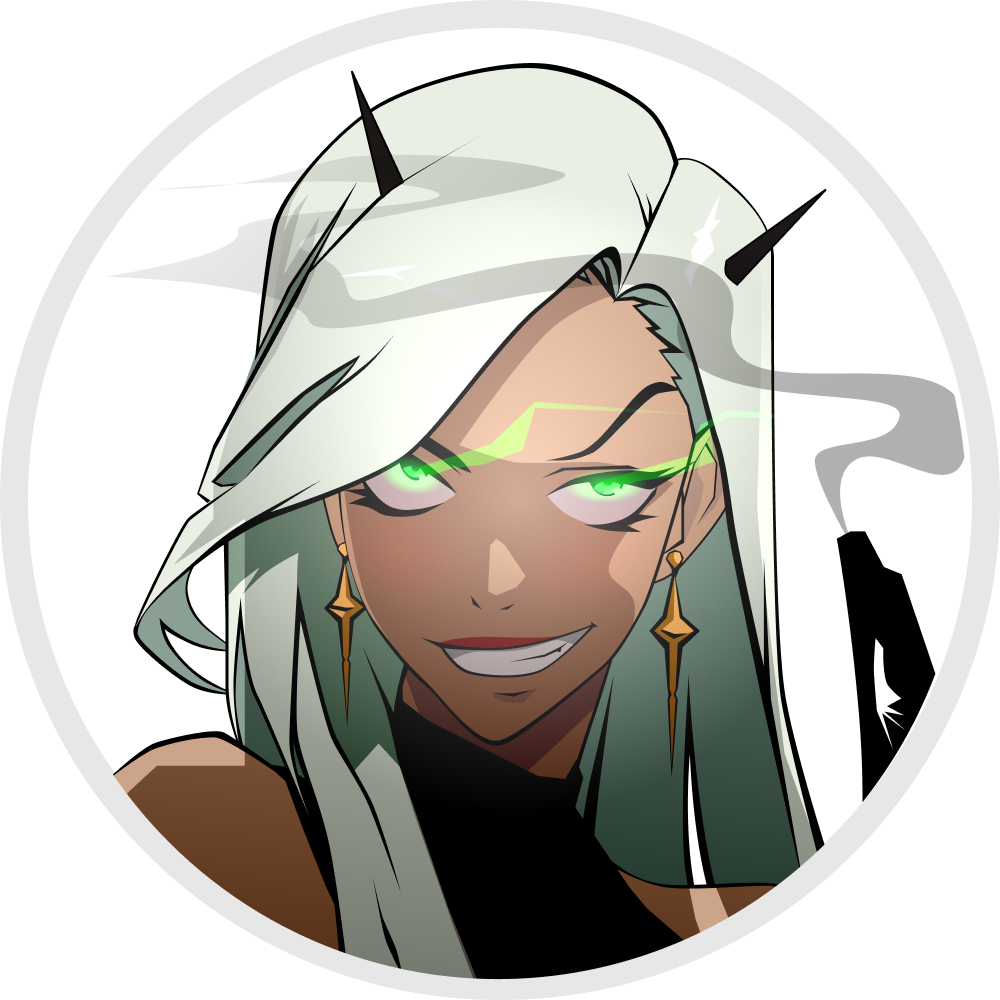
COLORS
Black and white. Green and gold. For cash money, clearly.The black and white is a common thread among the four siblings. Her palette echoes Promise in moral irreverence—expensive platinum against villianess black. But while his accents are red and blue—the primary colors of American audacity, hers are green and gold—the quiet colors of currency and capital. Her tones don’t shout—they sit still and accumulate value.
NAME
Pecunia means money in Latin. Not commerce, not hustle—just cold hard cash. Quiet. Passive. Absolute. A name that doesn't chase power. It holds it.As the third child, Pecunia embodies the emotional logic of Sloth. What some might call laziness is simply, to her, calculated stillness. She doesn’t grind, she places bets. She doesn’t run companies—she buys, flips, and exits before the drama. Her power is leverage, not labor. She doesn't need to build when she can own.
4. Volo, the philanthropist.

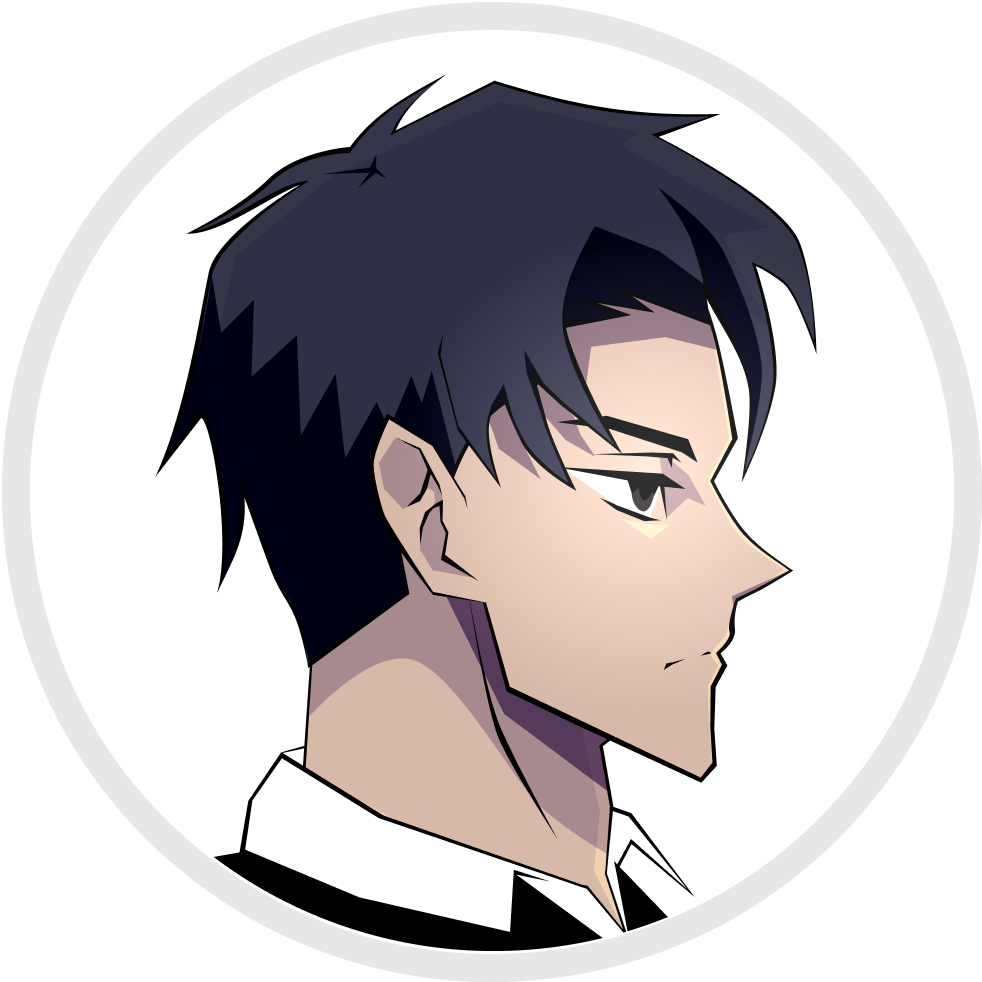
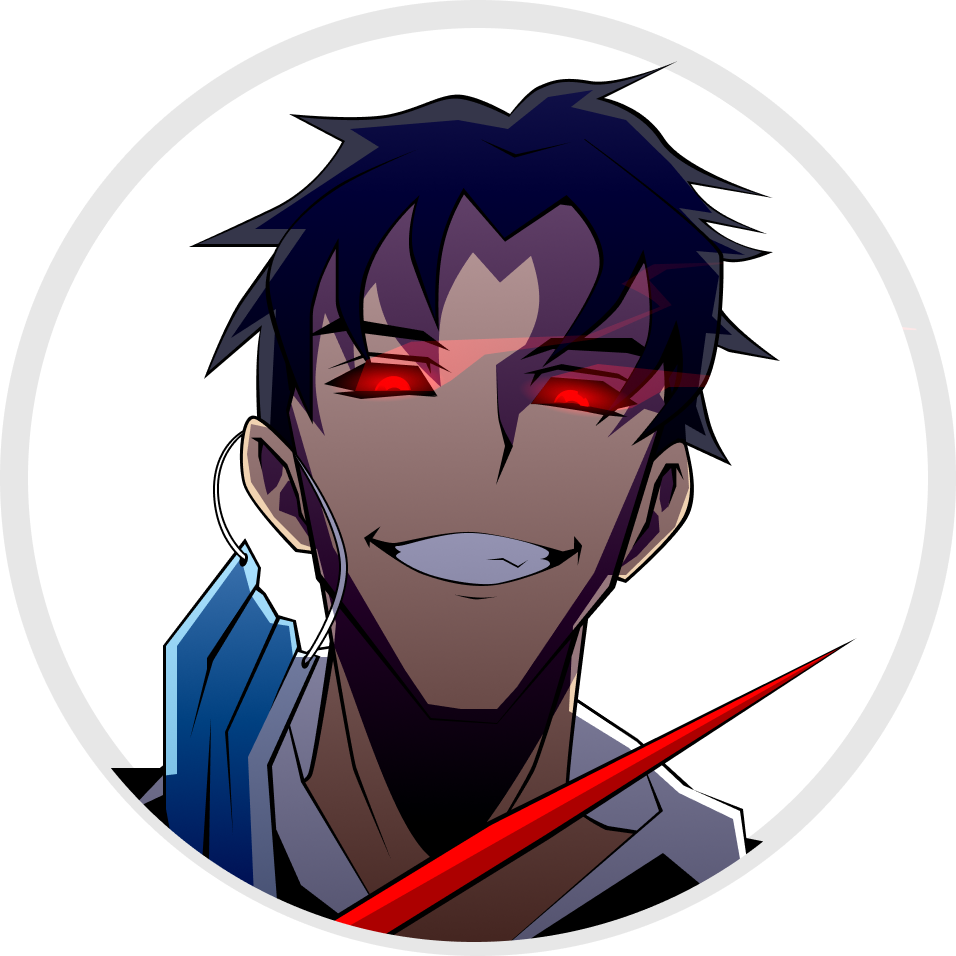
COLORS
Red, white, blue, and black. Just like Promise and Pandora, but a completely different permutation.Volo's black is all natural. It's in his hair, in his eyes, and his outfit as tradition, not declaration. He's not dark to make a statement, it's simply part of his nature.
He doesn't wear white as moral armor, nor as cosmetic vanity. For him, it's just clean. Because life requires simplicity and precision. Neither good nor evil, just balance.
Volo's accent colors speak inversely to Promise's. While his older brother's red is a flashy, external statement evocative of cherry red sports cars, Volo's red is a deep, glowing aura from within, revealing his hidden will and desire.
While Promise's blue is a flicker of internal lightning, Volo's blue is in his mask. It's a sterile, clinical exterior. A tool of distance and control.
NAME
Volo means "I want" in Latin. Notably desire in the first person, present, singular form. He's present in the moment, and aware of his feelings. He's not here to be a symbol, a resource, a gift, or a sacrifice. He lives for himself.5. Luden, the cursed.


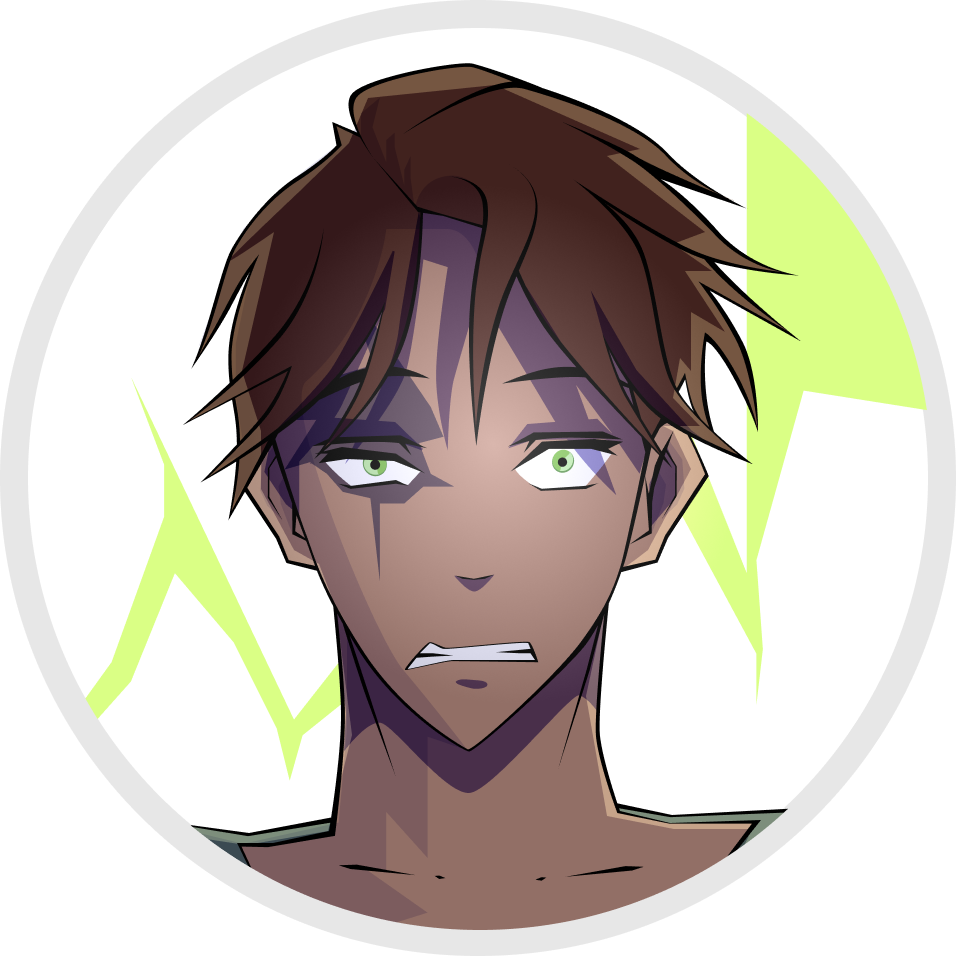
(He's adopted.)
More importantly, that awkward lime green is signature to his Voidpet, Cringe—a conscious tangle that loops in on itself like a bad memory. Cringe is messy. Shameful. Embarrassed just to exist. While the others rock the glamour of outcomes, Luden carries the burden of becoming. The awkward, sweaty, trying-too-hard middle part of success that everyone pretends didn’t happen.
While Luden identifies as laughably pathetic, he is beloved. He arrives in the wake of disaster—after the Windfall apartment is demolished, and the siblings seek refuge beside the dumpster-shelter he'd claimed as his home. His presence—half miracle, half liability—inspires them to build a new life instead of seeking adult assistance.
Luden brings levity. He brings failure. He brings the awkward, inconvenient truth that being human means being embarrassing. But Luden also offers them joy and childhood, which turns out to be exactly what they need to start building their empire.
And why Latin again? Because Latin is a language of unique privilege. Not anyone's mother tongue—but the language of prep schools, intellectualism, and legacy. More specifically, it's the language of Layer One, the Garden of Consciousness—and its culture affects all of its people, even the abandoned and cursed.
COLORS
Olive and lime green. Which feels jarringly out of place in the Windfalls' palette—until you consider the undertones of the US dollar bill.More importantly, that awkward lime green is signature to his Voidpet, Cringe—a conscious tangle that loops in on itself like a bad memory. Cringe is messy. Shameful. Embarrassed just to exist. While the others rock the glamour of outcomes, Luden carries the burden of becoming. The awkward, sweaty, trying-too-hard middle part of success that everyone pretends didn’t happen.
NAME
"Ludens" means "to play" in Latin. It is also the root of word "ludicrous," which means "laughable" or "absurd".While Luden identifies as laughably pathetic, he is beloved. He arrives in the wake of disaster—after the Windfall apartment is demolished, and the siblings seek refuge beside the dumpster-shelter he'd claimed as his home. His presence—half miracle, half liability—inspires them to build a new life instead of seeking adult assistance.
Luden brings levity. He brings failure. He brings the awkward, inconvenient truth that being human means being embarrassing. But Luden also offers them joy and childhood, which turns out to be exactly what they need to start building their empire.
And why Latin again? Because Latin is a language of unique privilege. Not anyone's mother tongue—but the language of prep schools, intellectualism, and legacy. More specifically, it's the language of Layer One, the Garden of Consciousness—and its culture affects all of its people, even the abandoned and cursed.